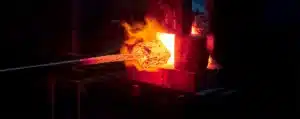You know these huge crosses we see inside big churches? For us Jews, the cross today is mostly identified as the symbol of Catholicism. But what if we told you that the idea of a Messiah nailed to a cross comes from our own Hebrew Scriptures?
What if we told you that Zechariah, the prophet who lived and prophesied in about 600 BC, predicted that the Messiah would be rejected by His own people and be pierced and killed? Zechariah, who immigrated from the diaspora, prophesied in chapter 12 about a time in the End of Days during which the people of Israel shall return to the Land of Israel. They shall be the focus of global attention, and that the hatred towards the people of Israel will intensify, which will eventually lead to many nations attacking our people in an all-inclusive war.
“On that day I will make Jerusalem a heavy stone for all the peoples. All who lift it will surely hurt themselves. And all the nations of the earth will gather against it.” [Zechariah 12:3-4]
To the rest of the nations, Israel will feel like some heavy, troublesome stone. So much so, that they will grow tired of us. Sounds a bit too familiar, doesn’t it??
Zechariah describes the people of Israel in the Land of Israel, surrounded by many enemies gathered against it, shrouded in fear. And, once there are no longer any allies to rely on, the people of Israel shall finally remember God and turn to Him, pleading for help. How typical it is of us to only remember God when we are looking death in the eye. Zachariah goes on to prophesy:
“On that day the Lord will protect the inhabitants of Jerusalem, so that the feeblest among them on that day shall be like David, and the house of David shall be like God, like the angel of the Lord going before them. And in that day I will seek to destroy all the nations that come against Jerusalem.” [Zechariah 12:8-9]
God promises that in the day when all of our enemies gather against us, He Himself will intervene. However, God’s intervention is going to go far beyond the physical dimension. It will also be spiritual.
Pay attention to verse 10:
“And I will pour out on the house of David and the inhabitants of Jerusalem, a spirit of grace and mercy, so that when they look on me, on Him whom they have pierced; they shall mourn for Him, as one mourns for an only child, and weep bitterly over Him, as one weeps over a firstborn.” [Zechariah 12:10]
Zechariah prophesies that, in the End of Days, God shall pour out His spirit on the people of Israel and, as a result, they will look to Him and understand that they have pierced Him, which will lead to national mourning, similar to the grief of a family whose firstborn has died.
What will cause this surprise? The realization that this man, who was wrongfully blamed for all our troubles, the pogroms, the Inquisitions and the Crusades – is actually our Messiah.
And why will there be such grief across the nation?
Because we finally understand that we have been piercing our Messiah for thousands of years, rejecting Him and calling Him names: “May His name and memory be erased.” The notion that our people will acknowledge the same man we have pierced hints to the premise that, before that point, the people of Israel did NOT acknowledge He whom they have pierced, both by nailing Him to the cross and by piercing His side with a spear as he was on it.
If that man is indeed our Messiah, it means that before then we did not acknowledge Him and that He had to suffer, be pierced and die. And if that man is indeed the Messiah, it means that the people of Israel (as a whole) did not recognize Him until that moment. Once our people acknowledge both Him and their own departure from God’s truth, they will repent and glorify Him with bitter tears and great sorrow, just as they would following the death of a firstborn son.
Now, please pay close attention to the identity of this pierced man:
“When they look on Me, on Him whom they have pierced.”
God is the speaker. God is the one who will pour out His Spirit. God is the one on whom our people look, and God is the one whom the people of Israel have pierced!
Just as rejecting the prophets sent by God was equivalent to rejecting God Himself, piercing the Messiah is piercing God Himself. God revealed Himself to us in the form of the Messiah whom we have pierced and rejected, as a nation. However when He died, He became the sacrifice of atonement for our sins.
The New Testament mentions that along with Yeshua, who was crucified on the Eve of Pesach in Jerusalem, two other criminals were crucified as well. The religious leaders asked to break the legs of the crucified men in order to hasten their deaths, as they did not want their bodies to be up on the crosses during the Sabbath. When the soldiers reached Yeshua, they saw that He was already dead. The Gospel of John states:
“But one of the soldiers pierced His side with a spear, and at once there came out blood and water.” [John 19:34]
It’s interesting that John chose to mention that both blood and water came out of Yeshua. Whereas the ancient reader might have found it peculiar that John would even bother mentioning that. Today we know that, physiologically speaking, when a person dies, he experiences Pericardial Effusion; The blood is separated into a clear liquid and red blood cells. And that is exactly what John saw. A fact which proves that this man had indeed passed on. Of course, John had no way of knowing this, as that scientific knowledge had yet to exist at the time.
By the way, later on in the New Testament, the Book of Revelation, chapter 1 quotes Zechariah’s prophecy in that same exact context: The return of Yeshua the Messiah and the acknowledgement of the people of Israel of the Messiah we have pierced and rejected:
“Behold, he is coming with the clouds, and every eye will see him, even those who pierced him, and all tribes of the earth will wail on account of him.” [Revelation 1:7]
However, as you could probably guess, Rabbinic Yeshivahs don’t exactly teach about Zechariah or his prophecies. We’ve already encountered several attempts made by rabbis today, after referring them to the prophecy, to interpret it in various ways. Their problem is that the Sages of Early Judaism, in stark contrast to them, always interpreted Zechariah’s prophecy as we do: As a prophecy about the Messiah who is to be pierced to death!
See, for example, one of the ancient interpretations in the Talmud which attributed the same meaning to the prophecy in Zechariah 12: The Messiah, son of Joseph, must die. He is, according to ancient Jewish tradition, the tormented and suffering Messiah. If so, why is it such a surprise when the New Testament attributes this verse to Yeshua? … the Messiah who suffered and died upon the cross for our sins.
The Babylonian Talmud says:
“One holds that it was for the Messiah the son of Joseph who was killed, as written in Zechariah 12: When they look on me, whom they have pierced, they shall mourn for him, as one mourns for an only child.” [Tractate Sukkah, Chapter 5]
As we know, the term “Messiah the son of Joseph” comes from Joseph’s character in the Torah. Joseph was rejected by his own people, exiled to the Gentiles, believed to be dead and forgotten entirely. Meanwhile, among the Gentiles, Joseph was welcomed and became a great and important leader. He performed miracles and wonders in their midst and eventually, Joseph appeared before his brothers again. And this time – they didn’t reject him, but accepted him and mourned for him with bitter tears.
Like Joseph, Yeshua the Messiah was rejected by our people, exiled to Gentiles, believed to be dead… forgotten entirely. Meanwhile among the Gentiles, Yeshua was welcomed and became a great and important leader. He continued to perform miracles and wonders in their midst and, as we have seen – one day, like Joseph, Yeshua too will once again be welcomed by His people, who will mourn deeply for Him.
Even Rashi, in his commentary on tractate Sukkah 52, interprets Zechariah’s prophecy and admits:
“And the Land mourned in the prophecy of Zechariah and prophesied for the future that they would mourn the Messiah the son of Joseph who was killed…” [Tractate Sukkah, Chapter 52]
Rabbi Moshe Alshich comments on this passage:
“When they look on me, that they will look to me in complete repentance, seeing that the one they have pierced is the Messiah son of Joseph, who will take all of Israel’s faults upon Himself.” [Rabbi Moshe Alshich, “Marot HaTsobeot” which means “Collected Visions”1]
By the way, Rabbi Alshich also says that the Messiah willingly accepts His torment:
“For He Himself wishes to bear it… And we thought that He would not have taken it upon Himself, only stricken, smitten by God and afflicted. But when the time comes when He is revealed in all his glory, then all shall see and understand how great is the power of He who suffers torment for the generation.” [Rabbi Moshe Alshich]
He based this on Isaiah 53 – yet another chapter about the Messiah who will suffer, be rejected and die. Whereas the prophecy in Isaiah 53 teaches us that the Messiah will die, Zechariah’s prophecy teaches us how the Messiah will die: By piercing. By the way, about Isaiah 53, we expand further here.
Zechariah’s prophecy about the pierced Messiah corresponds not only with Isaiah’s in chapter 53, but also with King David’s prophecy in Psalms 22 – yet another prophecy about the pierced Messiah that you can read about here.
- Cited in Vol 3 of Dr. Michael Brown’s Answering Jewish Objections to Jesus page 49, from a translation by Driver and Neubauer, ‘The Suffering Servant of Isaiah According to the Jewish Interpreters page 258
















